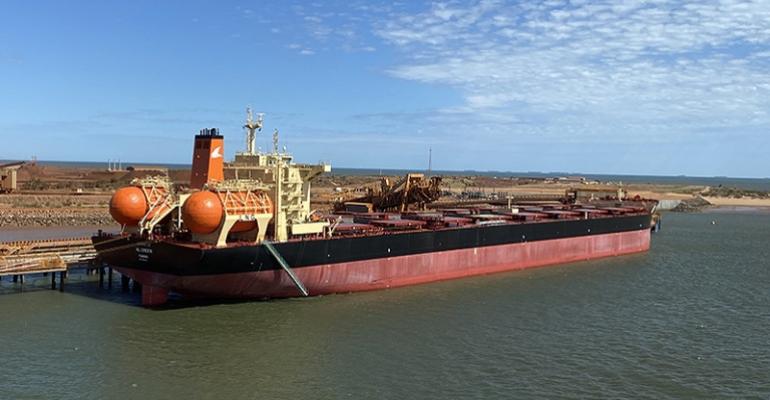As ammonia emerges as one of the frontrunners in shipping’s shift to low and zero carbon fuels Pilbara Ports Authority (PPA) is joining with Yara Clean Ammonia to assess potential demand for ammonia bunkering and the required infrastructure. Supply would leverage the existing large-scale ammonia production facility of Yara Pilbara.
The collaboration agreement would also focus on safety and creating ammonia bunkering guidelines.
“The potential of ammonia as a fuel to effectively decarbonise the maritime industry is very clear; however some questions remain on how to maximise safe and efficient fuel delivery in a port environment. This Collaboration with PPA intends to address these questions and consequently will help fast-track ammonia as a zero-carbon fuel in the region.” said Murali Srinivasan, SVP and Commercial Head of Yara Clean Ammonia.
PPA is the world’s largest bulk port authority covering the West Australia ports of Ashburton, Dampier, Port Hedland and Varanus Island. The world’s largest bulk carrier charterers such as BHP and Cargill are keen to reduce their shipping emissions are active participants in a number of projects to develop green fuels.
PPA CEO Roger Johnston said: “PPA strives to be a frontrunner in establishing frameworks to ensure safe ammonia bunker operations. This collaboration with Yara Clean Ammonia creates great opportunities to work together to reduce carbon emissions.”
The joint project is expected to take about a year to complete.
PPA handles more than 17,000 vessel movements a year, with an average of 35 vessels per day.
Copyright © 2024. All rights reserved. Seatrade, a trading name of Informa Markets (UK) Limited.
Add Seatrade Maritime News to your Google News feed.  |

